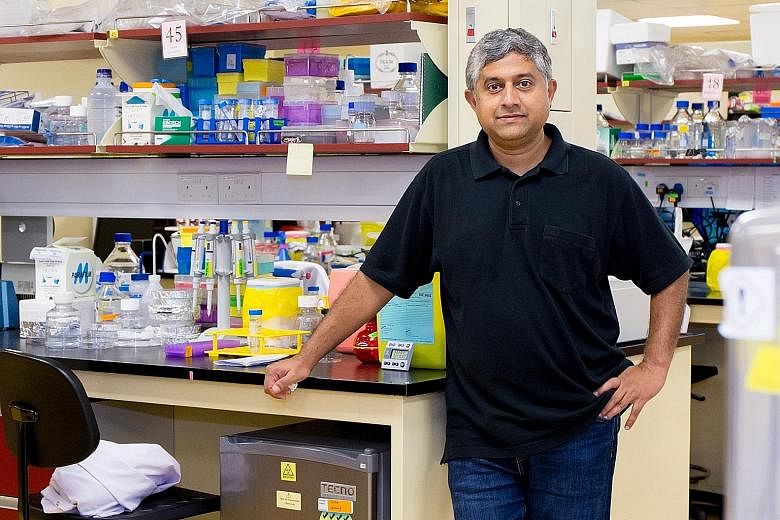In the study led by Professor G.V. Shivashankar, deputy director at the Mechanobiology Institute at the National University of Singapore and the Firc Institute of Molecular Oncology in Italy, the iPSCs were made using only mechanical cues from the mature cells' environment.
Said Prof Shivashankar: "In our work, we've been looking at how cells are affected by the local mechanical cues they would receive in the body... And this study shows that cells have this ability to reverse themselves (into stem cells), driven by mechanical constraints, and we can actually make induced pluripotent stem cells out of these constraints."
Already a subscriber? Log in
Read the full story and more at $9.90/month
Get exclusive reports and insights with more than 500 subscriber-only articles every month
ST One Digital
$9.90/month
No contract
ST app access on 1 mobile device
Unlock these benefits
All subscriber-only content on ST app and straitstimes.com
Easy access any time via ST app on 1 mobile device
E-paper with 2-week archive so you won't miss out on content that matters to you

